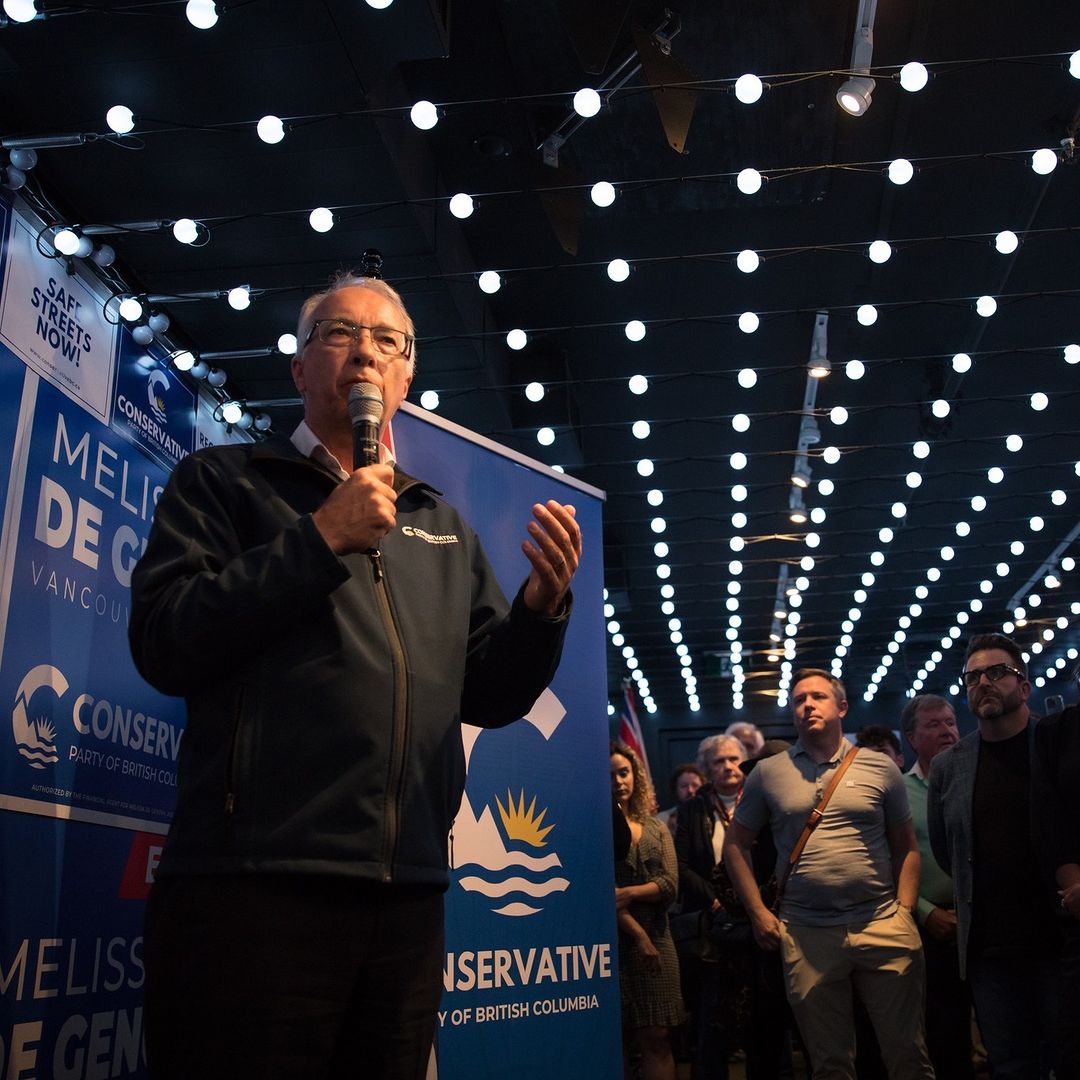Rustad vows to give B.C. construction regulatory relief
The Conservative part leader made promises on major projects, cutting red tape and unleashing the private sector.

Key Takeaways:
- BC Conservative Leader John Rustad emphasized cutting red tape, with a promise to reduce government regulations by 25% in the first term and introduce a red tape reduction law to ease the regulatory burden on the construction industry.
- He pledged to eliminate the federal carbon tax and outdated fuel standards, which would lower fuel costs for construction companies, along with streamlining the permitting process to speed up project approvals.
- Rustad committed to several major infrastructure projects, such as bridge replacements and highway expansions, while also addressing the labour shortage by simplifying accreditation for internationally trained workers and opening up procurement processes.
The Whole Story:
BC Conservative Party Leader John Rustad addressed the construction sector this week, outlining his vision for the construction industry in B.C. Rustad’s speech at the Independent Contractors and Businesses Association’s Construction Innovation Summit highlighted his party’s focus on cutting red tape, reducing the cost of doing business, and supporting significant infrastructure projects to boost the construction sector.
Rustad stated that a BC Conservative government would prioritize reducing barriers for the construction industry, starting with a commitment to reduce government regulations by 25% in its first term. “We need to get government out of the way,” Rustad said, emphasizing the need for a more efficient regulatory environment to help the private sector thrive. He also proposed introducing a red tape reduction law to ensure that for every new regulation implemented, existing regulations would be removed.
Highlighting the challenges faced by construction businesses due to high fuel costs, Rustad promised to eliminate the carbon tax and outdated carbon fuel emission standards, which he claimed would reduce costs for construction companies by approximately 36 cents per litre of fuel. He cited an example from a construction site in Surrey, where the carbon tax on fuel used to dig a housing foundation added $40,000 to the project’s costs.
Rustad also pledged to accelerate the permitting process for building projects, working with municipalities to reduce approval times for building permits and business permits. He cited concerns from contractors regarding lengthy and complex processes that slow down construction, particularly in urban areas like Vancouver.
On infrastructure, Rustad committed to several major projects, including the replacement of key bridges and expansion of highways. Notable projects mentioned included a new bridge across Okanagan Lake, replacement of the Taylor Bridge in Peace Country, replacing the Ironworkers Memorial Bridge, fast-tracking the George Massey Tunnel replacement project, and upgrading Highway 19 in Nanaimo. He also stressed the importance of expanding Highway 1 to six lanes from Vancouver to Chilliwack to alleviate congestion, calling it a “critical link” for the province. He would also extend permits for LNG infrastructure projects.
“They would have to go back to the environmental assessment process. That would take probably 10 years and we would lose another generation of opportunity for LNG,” he said.
The
In terms of labour, Rustad acknowledged the industry’s ongoing struggle to find skilled workers and pledged to reduce barriers for internationally trained workers to obtain accreditation in BC. “We need to ensure people can get to work right away, rather than being held back by long, cumbersome processes,” he said.

Rustad also touched on procurement policies, promising to implement an open procurement process for qualified contractors and workers, which would provide greater opportunities for local construction businesses. Additionally, he emphasized the need to expand industrial land availability to support manufacturing and construction growth in the province.
“It’s time to get this province back up and running,” Rustad declared, emphasizing that his party’s approach would focus on unleashing the potential of the private sector while reducing government intervention. He concluded by stating that a BC Conservative government would “bring common sense back” to B.C.’s construction industry, enabling companies to succeed and pay good wages, which in turn would address affordability issues.
BC Premier David Eby has also been busy courting the province’s construction sector as election day approaches. Eby recently announced several key policy initiatives aimed at enhancing the construction sector and addressing housing needs. He pledged to fast-track the factory-built home construction sector by streamlining regulations and creating a province-wide framework for municipalities, which includes approving “ready-to-use” designs to expedite the permitting process.
Eby also unveiled a $36-billion investment plan for BC Hydro infrastructure over the next decade, expected to support 10,500 to 12,500 jobs annually while expanding the electrical system for industrial development and housing. Additional commitments include eliminating ‘no pet’ clauses in rental buildings, subsidizing insurance for small landlords, and building new long-term care facilities. Furthermore, he proposed a new streamlined approval process for electricity projects and plans to establish an addictions treatment center specifically for construction workers.
